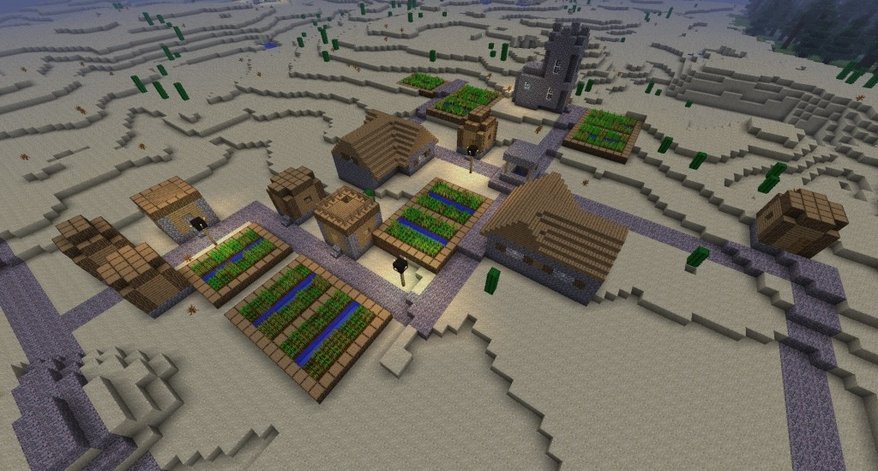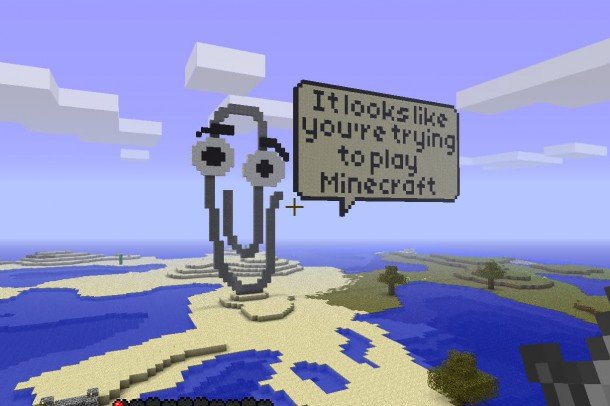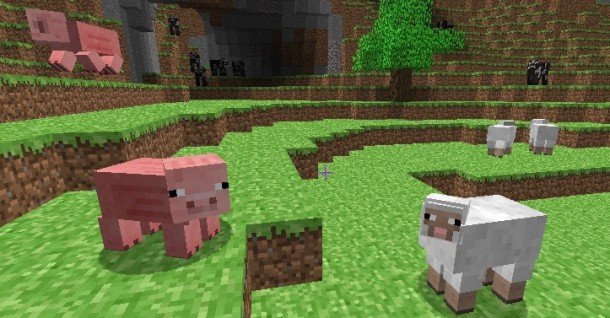
Tim Clark: I don't blame him at all. It's $2.5bn. Enough money to buy the moon. You can't tell me you'd have turned that down because of, what, some sense of duty to the community? C'mon. I once had a conversation with my old man about greedy sports owners and players who always seemed to want more. He noted that he'd never met a rich man who wasn't interested in being a lot richer. That said, I don't think this should even be painted as greed on Notch's part. It's common sense.
The burden of expectation and responsibility clearly exerted huge pressure on him. The disconnect from having started out as a scrappy indie dev who somehow bottled block-shaped lightning to now being the CEO of a global pop cultural phenomenon created a tension that was easy to spot. And so, ultimately, Wonka has decided to dispense with his chocolate factory. Whether or not it should have been bequeathed to an apple-cheeked urchin, rather than dollar-eyed acquisition experts at Microsoft remains to be seen.
There are other more nebulous factors at play here too, appropriately enough related to creativity and ambition. In all walks of life, it seems like it isn't enough to be successful once. You have to prove yourself over and again. To show that the talent is real, and you didn't fluke it. Well, when does that stop, and why is it so bad to admit some great triumphs were only one-offs? There are sportsmen who play a single great season and then fade away. Bands which release a killer debut album they struggle ever to get close to. (I'm looking at you here, Interpol.) Few people get to redefine an entire medium twice. Maybe Notch realised that Minecraft was a one-off he was never going to get close to, and understandably didn't much fancy seeing out his days tending to its sprawling empire. The hat wore heavy on the king.
Evan Lahti: The worrying thought to me is that one of the best games for children on PC is now the hands of a closed platform-holder. As I wrote last week , Minecraft is an incredible piece of evangelism for PC gaming's values—openness, self-made fun, moddability. I don't think Microsoft will lay its hands on the current PC version at all, but it's hard to believe it won't undercut the PC version of the game (even though it's outsold the Xbox version by 4 million copies) in order to make back that $2.5 billion the only way it possibly can: by using “Minecraft 2” as a carrot to get that generation of kids and adolescents onto its closed platform.

Cory Banks: The big question I keep seeing on Twitter this morning is, “Why would Microsoft want Minecraft?” That's easy: Microsoft likes to own successful things. It'll look like a big win to fancy-suited investor types, who watch their kids playing this weird pixelated game and think only about dollar signs and compound interest. Minecraft can become part of the Microsoft investor story, and someone in a corner office will shout “Buy! Buy! Buy!” and the world will keep turning.
We all know that it's not that simple, though. Minecraft is what it is—an insane, crazy indie development experiment that cannot be replicated. What would a Minecraft 2 look like? Does Steve travel back in time to some other procedurally generated world, discovering that the origins of the Nether Dragon are tied to a vast government conspiracy? No. The players don't want a new Minecraft, they want Minecraft. It's not a franchise so much as a wildly successful creation engine.
I don't know if I understand why Notch wants to leave it behind, either, but I respect that he does. Look at what he's done with one game. We now have an entire new generation of PC gamers, and unbelievably creative ones, to boot. The why my generation was inspired by id Software to make new Doom levels, that's how Minecraft players feel about creating entire worlds. That's huge, and I'm pretty grateful that we have that. No matter what happens to Minecraft the game, I can't wait to see what happens to Minecraft the player community, and how they transform the PC games of the future.
The biggest gaming news, reviews and hardware deals
Keep up to date with the most important stories and the best deals, as picked by the PC Gamer team.
Wes Fenlon: Maybe I'm being naive, but I don't see Microsoft's ownership of Mojang negatively affecting the cross-platform development of Minecraft. At least, not right away. I think the PC version will continue to be the lead platform, and it'll still get free updates that keep the millions of young Minecraft players interested in the game. The XBox One version will probably get a larger team, and become the best console port available. But Microsoft isn't going to pull a Halo with the series, and try to make it console exclusive to sell more Xbox systems. Minecraft is probably too big for that.
I think Microsoft will want more Minecraft players regardless of platform, so the PlayStation and mobile versions of the game will keep being updated. The more Minecraft players there are in the world, the more merch Microsoft can sell. The possible scenario that makes me sad, though, is that being owned by a big corporation will change the environment at Mojang, and the developers working on Minecraft's various versions will eventually be tired and frustrated by the corporate red tape, take their big payout, and go live on a beach somewhere. That will be a sad day for Minecraft, especially if lead developer Jens Bergensten goes with them.
Until that day comes, I'll remain optimistic: maybe Microsoft's money will help Minecraft reach a larger audience than ever. With or without MS's influence, I think the generation playing Minecraft now will grow up smarter than I am. When I was 10, I was playing Super Solvers games and thinking I was hot stuff for being able to do basic math. Kids today are programming their own computers inside a computer game. Everything's going to be all right.

Tom Marks: In a funny sort of way, one probably could have seen this coming. Not the $2.5 billion part, mind you, as that part is completely absurd. But Notch wanting to sell his company and make a graceful exit, almost definitely by standing through the moonroof of a limousine while making it rain hundred dollar bills, actually makes quite a bit of sense. Minecraft's runaway success was a shock to everybody, probably Notch most off all. He did what was, at the time, a weird move and sold copies of his unfinished game with the promise of more content and it worked so well that it practically reshaped the PC games market. Notch himself, however, was never really the reason for all this success.
He made an addictive shell of a game, it sold incredibly well, and then did the noble thing by using his sudden influx of money to hire a team, found a company, and finish the game he had already sold. He has said many times that finishing his side projects is not something he does often, and I'm willing to bet that the only reason minecraft ever left alpha was because so many copies had already sold and Notch is a pretty cool guy, not wanting to cut and run. This is not to diminish the work he did on Minecraft, he clearly understands good game design and how to make people have fun, but it was Minecraft's community that got into onto every platform currently being sold.
So if you are wondering why anyone who built so much and has caused so many good things in the PC world would want to leave that, remember that Notch is simply a good game designer who essentially won the lottery. Except this lottery also came with blind idolization, a company to that calls you its leader, and the eyes of the world critically staring and wondering what is next. I don't blame anyone for wanting to get away from that.

Andy Chalk: When I first heard the rumor about Microsoft acquiring Mojang, my immediate reaction was, nope. No way. Not happening. Not in a million years. Not just because Minecraft creator Markus "Notch" Persson is well-known for his anti-corporate stance—I will again cite his reaction to Facebook's buyout of Oculus VR earlier this year—but because I saw no long-term value in the deal for Microsoft.
I was completely wrong, obviously, but while $2.5 billion is an undeniably powerful motivator—and for the record, I'm very happy for Notch and co. and wish them nothing but the best with their future endeavors—I still don't see the attraction for Microsoft. There's a feeling that Mojang didn't leverage the property as fully as it could have, but I think there's legitimacy in the idea that Minecraft's popularity and durability stems in part from its status as an indie project: At its core, it remains handful of guys in Sweden plugging away on a weird little game.
That, to me, suggests that the mere act of owning Minecraft could damage its value to Microsoft, especially with Notch no longer at the helm. (And yes, I'm aware that he hasn't headed development on the game for a couple of years now, but he remains a powerful and very high-profile figurehead.) Add to that the endless, slow-motion fiasco of Games for Windows Live and the very pertinent question of whether Microsoft really wants to continue supporting Minecraft for the gang over at Sony, and the future of the game strikes me as very much in doubt. Microsoft could, and hopefully will, continue to nurture and grow the Minecraft ecosystem across all platforms, and finally demonstrate that it takes PC gaming seriously. But it could just as easily, and is perhaps more likely to, go the other way, leaving Minecraft overexposed, under-supported and possibly even platform-exclusive. It's rare that I really hope I'm wrong about something, but I don't see this ending well for anyone but Notch.
PC Gamer is the global authority on PC games—starting in 1993 with the magazine, and then in 2010 with this website you're currently reading. We have writers across the US, Canada, UK and Australia, who you can read about here.


